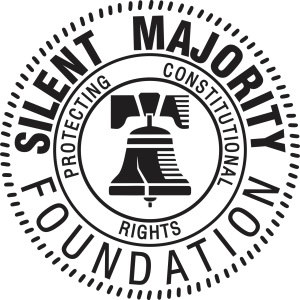
The paradigm has shifted from the Court protecting Washington citizens from over-taxation to the Court characterizing state action in such a way as to find taxation permissive under the Constitution
Austin Hatcher
Silent Majority Foundation
The Washington Supreme Court decision in Quinn v. State of Washington declaring that a capital gains tax does not violate the Washington Constitution is another affront to our rights. The Court’s basis for overturning nearly 100 years of law: “[t]he capital gains tax is appropriately characterized as an excise because it is levied on the sale or exchange of capital assets, not on capital assets or gains themselves.” The Court also held that “the capital gains tax is consistent with our state constitution’s privileges and immunities clause and the federal dormant commerce clause.”

In reviewing the history of taxation, the Court held that “In 1891, 95 percent of state and local tax revenues came from property taxes. During this early period, Washington’s economy was driven by farming, logging, mining, fishing, and like industries, a reflection of the state’s abundance of land and natural resources. Property taxes proved a fairly equitable and effective way to fund the government because ‘in those days the value of tangible property was great and the cost of government little.’” These resources remain abundant throughout the State; obviously, several of our Supreme Court justices have forgotten that fact.
Washington’s 1889 constitution did not limit property tax rates and it contained a strict uniformity clause requiring that property taxes be uniform on all forms of property. Hugh Spitzer, A Washington State Income Tax – Again? 16 Seattle U. L. Rev. 515, 522 (1993). Tax reformers sought to liberalize constitutional constraints on taxation and to introduce an income tax. Id. at 522-24. By the end of the 1930s, the voters, legislature, and judiciary had carved the basic state tax structure that remains today. See Spitzer, supra, at 538.
Aside from departing from the historical wisdom of Washington judges, and its People who have consistently rejected such tax measures, the purpose of the bill is an affront to Washingtonians as the first $500 million collected from the tax each year will be deposited into the education legacy trust account, which supports K-12 education, expands access to higher education, and provides funding for early learning and child care programs. See e.g., Income Tax Ballot Measures (11 separate initiatives, all defeated except the first, brought in 1932 which the Washington Supreme Court invalidated in Culliton v. Chase, 174 Wash. 363, 289 P.2d 81 (1933)) available at:
Culliton v. Chase
Annual revenue beyond $500 million will be deposited into the common school construction account, which funds the construction of facilities for common schools, although it is not specifically earmarked.
At a time when school choice is an important issue, We, The People, should be questioning what is happening with the taxes that are paying for those education services now. Why not a reduction in taxes paying for education? We should be asking why the government isn’t contracting and why has it grown. What’s the basis for a need for so much of the people’s resources? At a time when more students than ever are being homeschooled and performance metrics are falling for public school students, why is the cost of government growing? Where is it going?
However the new tax is characterized and whatever it is intended to benefit, the latest of new taxes on the People is just another way working families are taxed to death by the Washington legislature.
The truly worrisome result of the Supreme Court’s decision is that the paradigm has shifted from the Court protecting Washington citizens from over-taxation to the Court characterizing state action in such a way as to find taxation permissive under the Constitution.
The Silent Majority Foundation’s vision is “here to protect our God given constitutional rights. Our goal is to ensure Equal Protection under the laws of the United States of America and each State. We aim to restore the voices of you, the Silent Majority.’’
Also read:
- Letter: ‘There will be consequences’Hazel Dell resident Bob Zak criticizes Democratic lawmakers for advancing ESSB 5181, arguing it undermines parental rights and defies biblical principles.
- Op-Ed: La Center Schools — Committed to families and their childrenIn a public letter, the La Center School Board and Superintendent Peter Rosenkranz affirm their commitment to supporting families and honoring both state law and community values amid state-level scrutiny.
- Letter: Mayor blames others on homelessness problem in Vancouver while she has enabled a lawless encampment zoneVancouver resident Peter Bracchi urges city leaders to enforce laws and end permissive policies that have allowed unsafe encampments to overrun public spaces near the Share House.
- Letter: ‘Look it up for yourself’Camas resident Anna Miller encourages skeptics of Elon Musk’s claims about government waste to do their own research using official resources.
- Opinion: Defending the indefensibleNancy Churchill argues that Washington’s lawsuit against a sheriff cooperating with ICE reveals a deeper political agenda that puts public safety at risk.











The findings of the WA State Supreme Court fly in the face of plain and simple language in our State Constitution, as affirmed by EVERY other State that has excise taxes AND the IRS, all of which classify excise taxes as INCOME TAXES! In fact, this unconstitutional tax comes into effect AFTER $250K of certain sales, not as part of the sale, such as a home or other property. That it ONLY kicks in ABOVE a certain ANNUAL limit clearly identifies it as an INCOME TAX!
I also took huge umbrage at the justification the judges used. They denigrated their argument down to the “regressive” tax system in place, and “equity” issues, NONE of which are even germane to the situation!
Because the seven who voted to uphold this tax have NOT held the imposition of this tax up against the WA State Constitution, they are in violation of their Oath of Office! Because of that, they are NO LONGER QUALIFIED to serve on the bench. They should immediately resign! If they don’t then then need to be removed from office by the people!
This cannot stand!
FYI real estate is excluded
https://dor.wa.gov/taxes-rates/other-taxes/capital-gains-tax#:~:text=Background,tax%20only%20applies%20to%20individuals.
For now